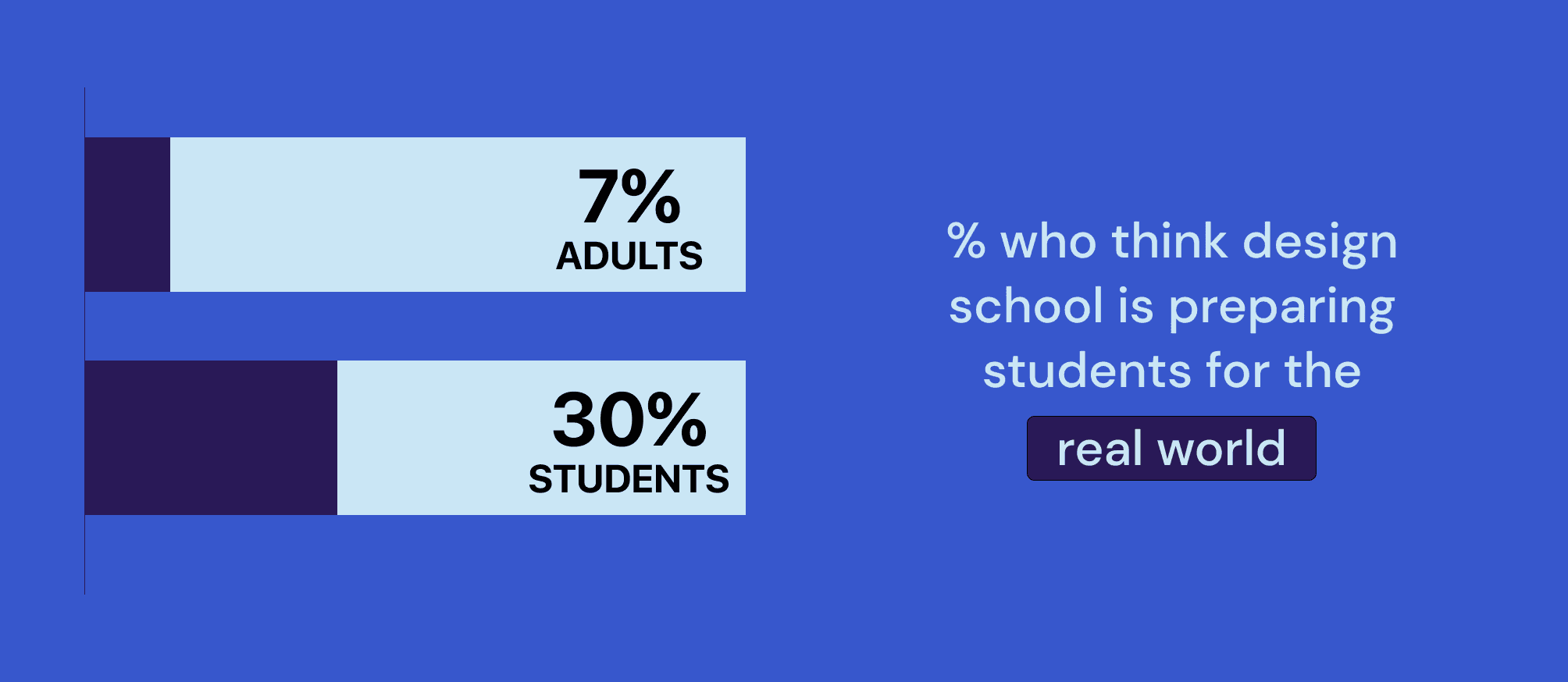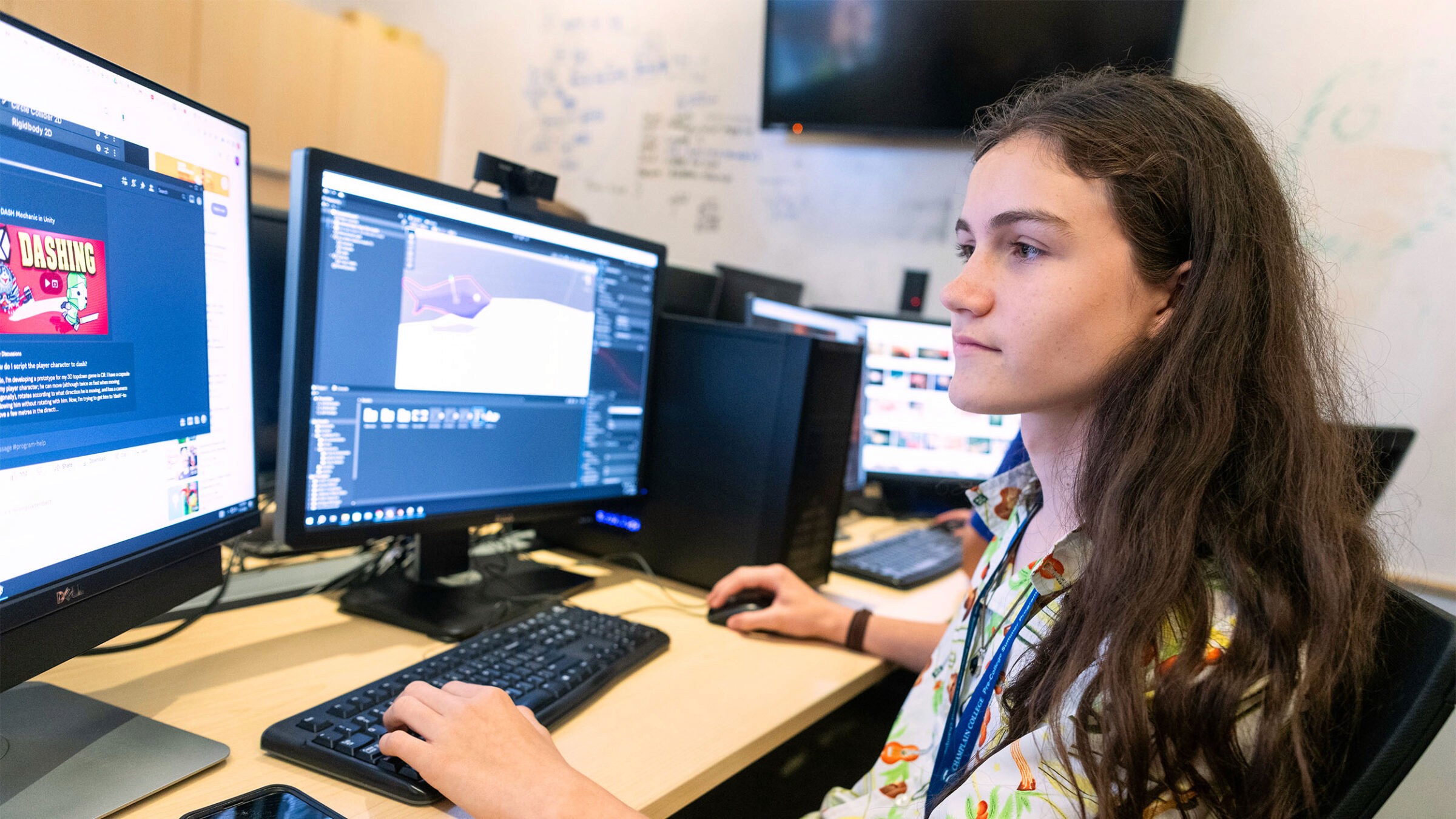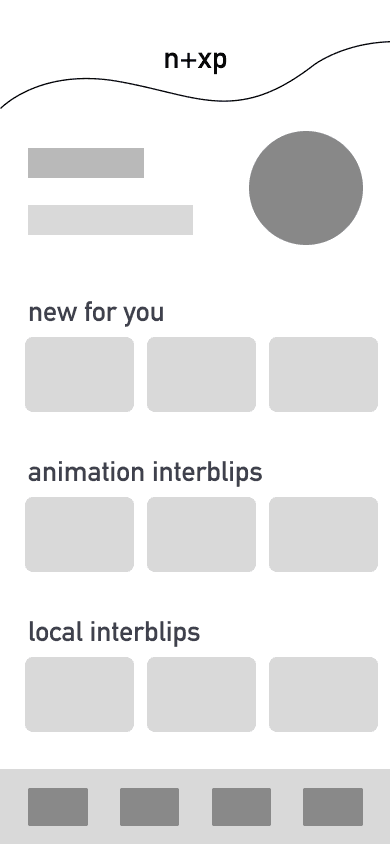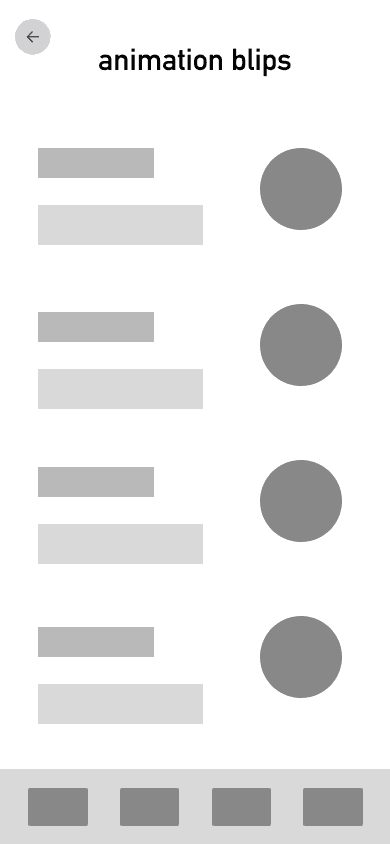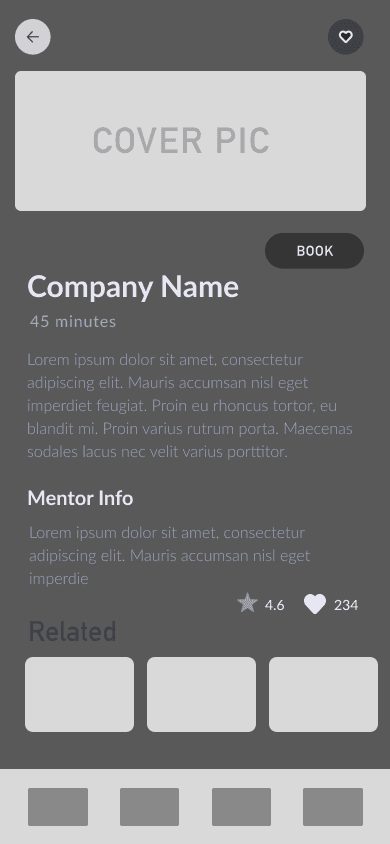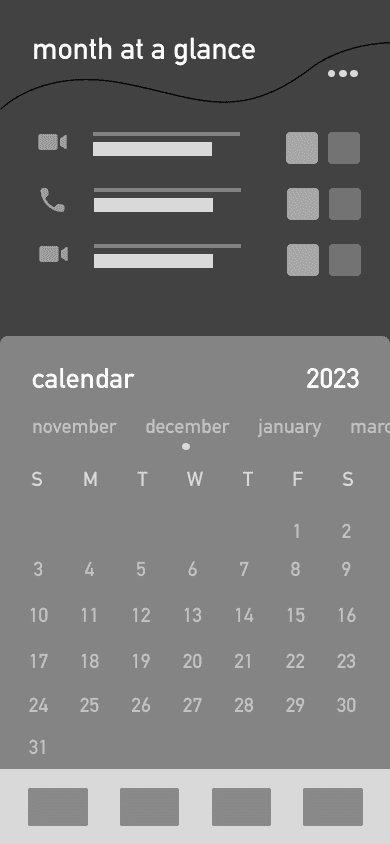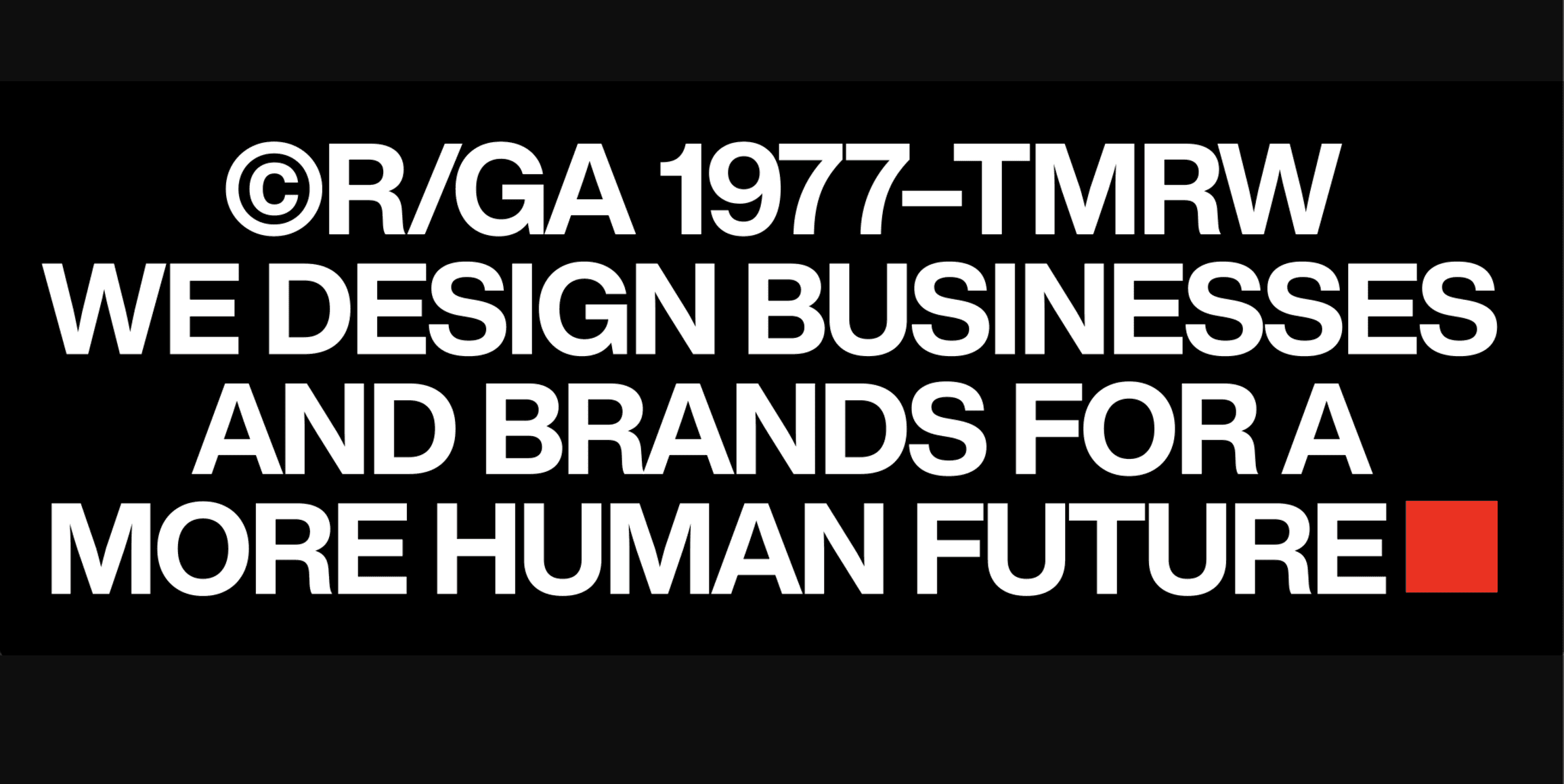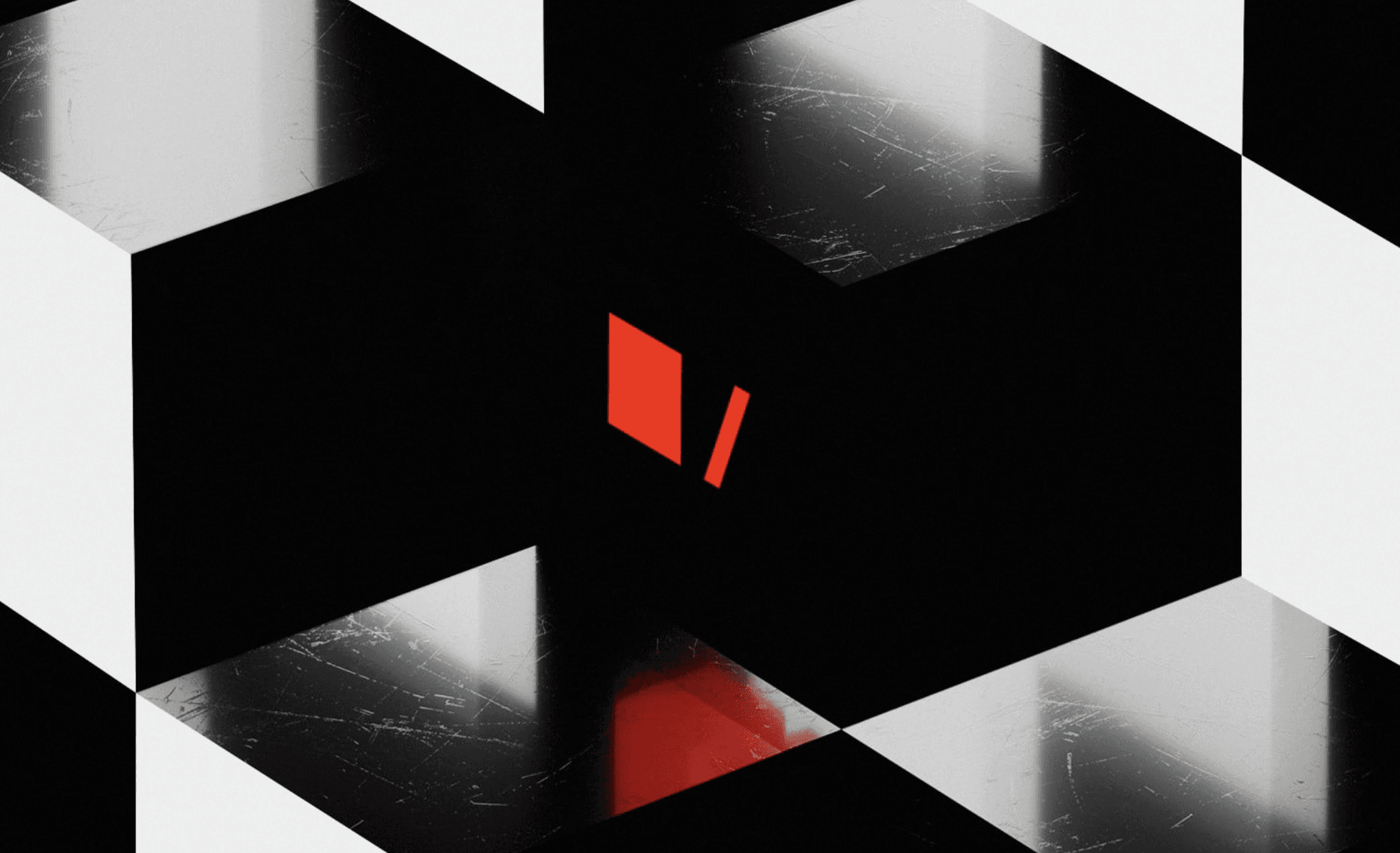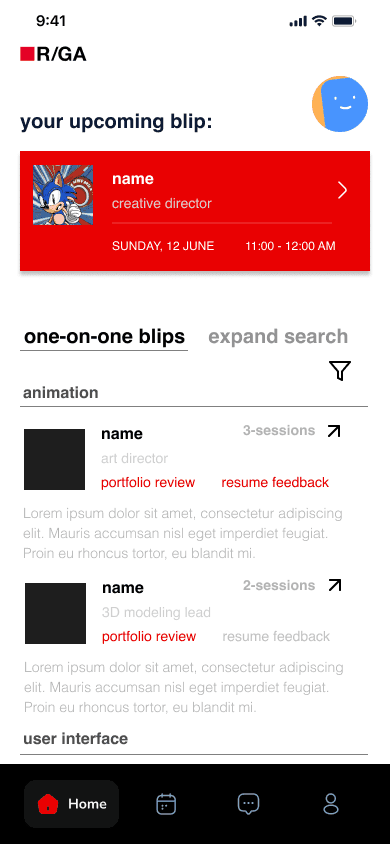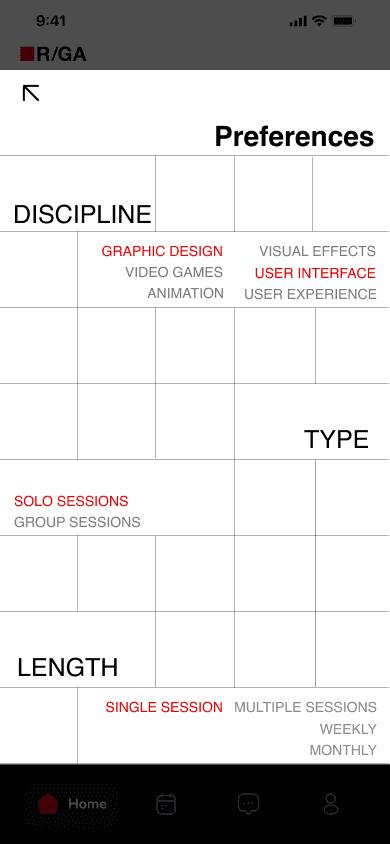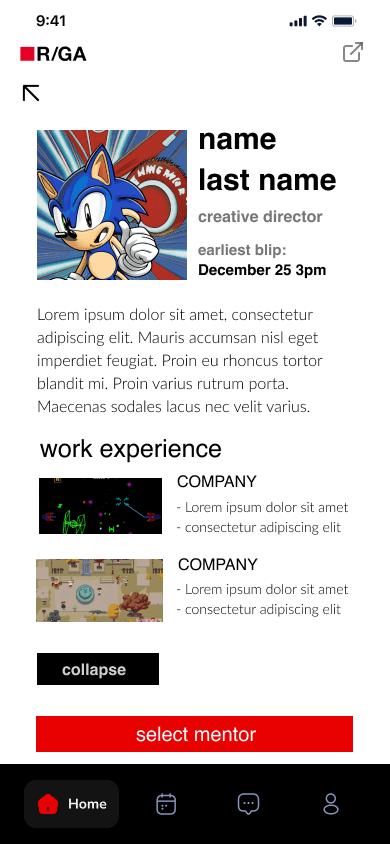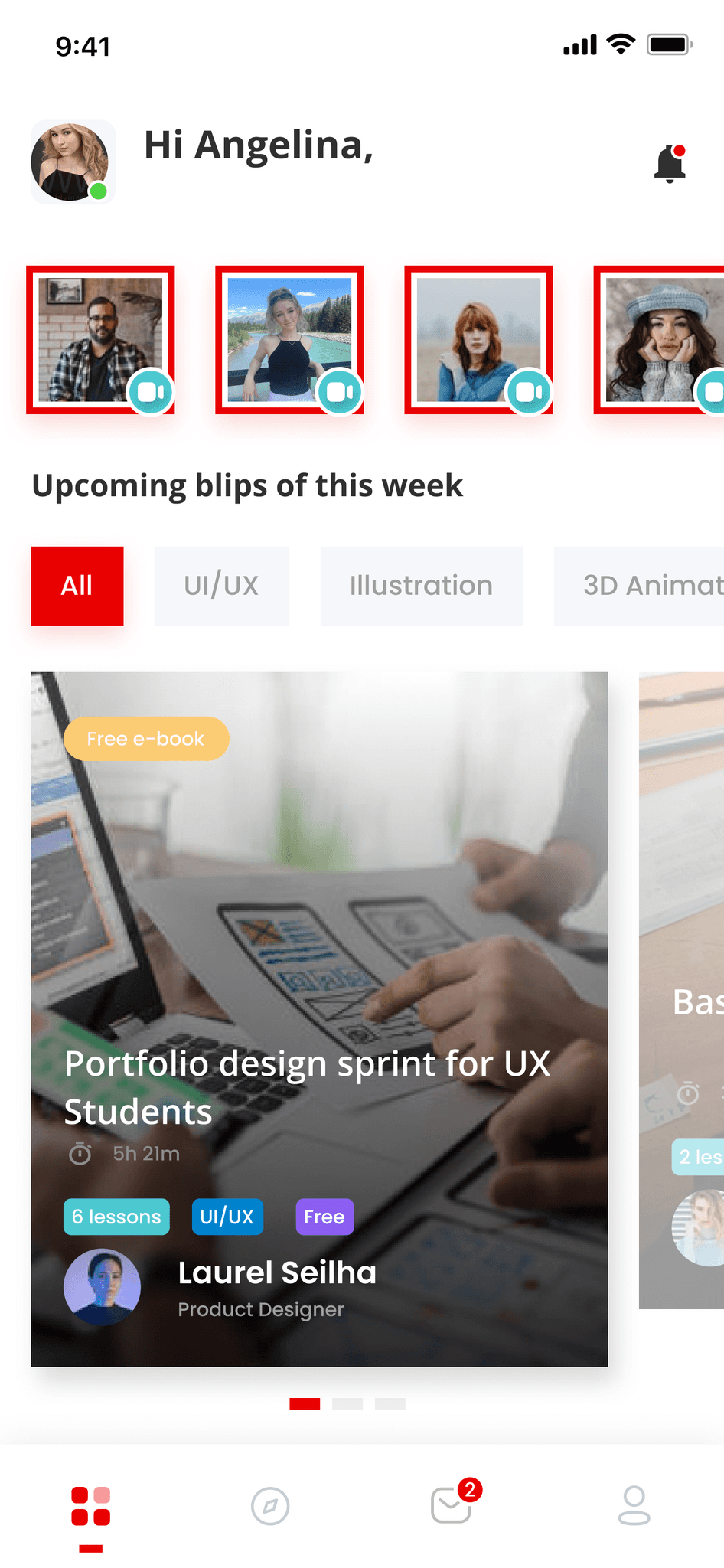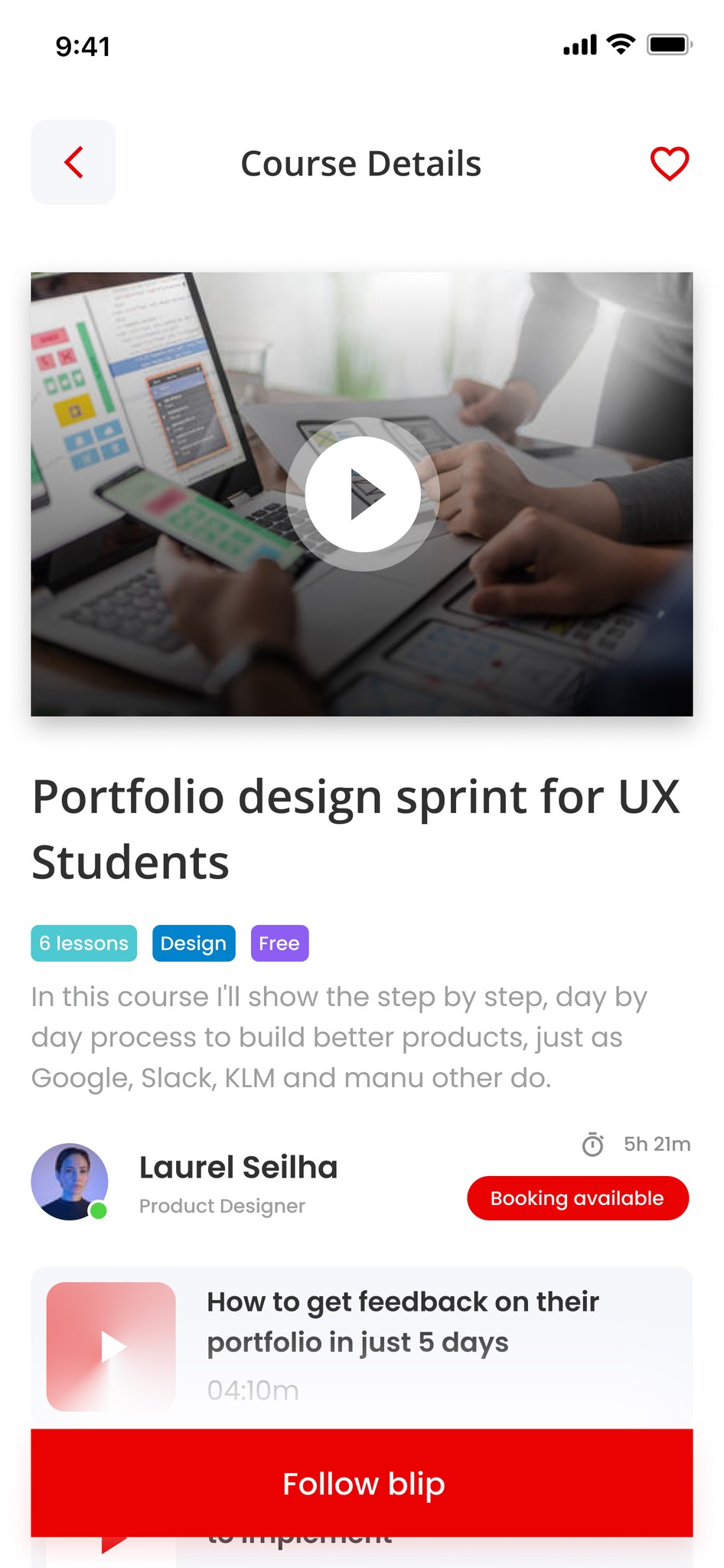P2PLearning Social Network
Social Media Design Internship | Winter 2024
Process
This was the question posed by a Parsons School of Design professor who had spent years watching talented seniors stumble as they approached the daunting leap into the professional world. He envisioned a bridge between academia and industry—a space where mentorship wasn't just a lucky break but a structured, accessible pathway.
When I joined P2PL Learning as the sole UX designer, this bridge was a blank canvas. Together, we set out to design not just an app, but an ecosystem that would connect students to industry professionals in New York and Philadelphia.
Starting a career in the creative industry oftentimes doesn't follow the conventional academic path and requires a larger emphasis on students:
Interviewing Game Designers
To create something truly meaningful, I needed to understand the people who would use it. I started with game designers—a group known for their collaborative spirit, and one I am a part of.
Why would they, busy as they are, invest their time in mentorship? Through interviews and shadowing sessions, I uncovered three main motivations:
Paying It Forward: Most mentors remembered a pivotal figure who shaped their career and wanted to be that person for someone else.
Skill Refinement: Mentorship offered them a chance to sharpen their own perspectives and rethink their practices.
Community Recognition: Being part of a platform designed for education positioned them as leaders in their field.
Interviewing Students
Next, I turned my attention to the students. What were their pain points? I conducted focus groups, diary studies, and one-on-one interviews. Their responses revealed a tapestry of challenges:
"I don’t even know where to start." A common refrain from students overwhelmed by the gap between school and work.
"Every mentorship program feels transactional." They craved genuine human connection, not one-off advice sessions.
"I’m scared to fail." The fear of rejection paralyzed many from reaching out to professionals.
These insights became the foundation of our design.
Sitemapping the User Flow
Diving into the prototyping, I created the User Flow sitemap for both the mentor and mentee, prioritizing the needs outlined in the interviews of community recognition and lowering the intimidation behind seeking guidance.
Student Persona
Based on the interviews, I developed a tangible representation of the core student persona type. I wanted to really take into account the senior student archetype who needs mentoship in order to get a job in the game industry.
Emily
Pain Points
Fear of Rejection:
"Every time I reach out to someone, I overthink. What if they don’t respond? What if I’m wasting their time?"
Impact: Emily avoids outreach altogether, leaving her feeling stuck.
Lack of Industry Knowledge
"I don’t know what studios are really looking for. Do they value a flashy portfolio or solid technical skills?"
Impact: She feels uncertain about how to showcase her work effectively.
Overwhelmed by Resources
"There are so many tutorials and articles, but none of them seem tailored to me."
Impact: She spends hours researching without tangible results.
Pain Relievers
Personalized Mentor Matching:
Emily is paired with a game designer mentor who shares her interests in immersive storytelling, providing her with tailored advice and encouragement.
Confidence-Building Tools:
Structured mentor-student meetings reduce her anxiety around outreach, giving her clear next steps to follow.
A Sense of Community:
Through the platform, Emily connects with other students on similar journeys, building a supportive network of peers.
Recap: Emily represents the thousands of students who are talented but stuck in the transition from education to career. P2PLearning’s tailored mentorship and resources empower her to navigate this critical stage with confidence and clarity.
Lo-Fi Designs
Our first version of the app was a love letter to mentorship. Lo-fi mockups prioritized simplicity and pivoted towards RGA's Brand Identity:
Try it out!
Matchmaking Based on Goals: A quick questionnaire connected students with mentors who shared their career aspirations.
Incentives for Mentors: We integrated features like profile badges and impact metrics to highlight their contributions.
Landing Page
"Blips" Browse
About Mentor
Calendar View
Designing with Stakeholders in Mind: R/GA
R/GA is a Global Creative Innovation company headquartered in New York. The P2PLearning App would be a contestant for the types of projects the company funds and develops.
HEADING – TAGS
H1–Display
56px – 3.5rem
Heading
H1
40px – 2.5rem
Heading
H5
18px – 1.125rem
Heading
H6
16px – 1rem
Heading
Landing
Preferences Page
About Mentor
Confirmation
When we presented the initial designs to external stakeholders, the feedback was clear: mentorship was important, but the app’s potential went beyond that.
The stakeholders told us to step away from a "transactional approach to networking". They envisioned a hub where education, niche learning, and mentorship could converge.
This feedback pushed us to broaden our scope.
We reimagined the app as a marketplace for learning—connecting users to workshops, peer-to-peer tutorials, and niche skill-building events.
Back to the Research
The pivot required a deeper dive into user motivations in a broader scope.
Since we already had an established group of users, I proposed a round of card-sorting exercises with a new direction. Asking the users to re-imagine the flow with an emphasis on:
These insights shaped the app into an intentional and user-focused design, prioritizing simplicity, genuine connection, and structured support for both mentors and students.
New iteration of P2PLearning:
In response to insights from user interviews and card-sorting exercises, the new web-based iteration of P2PL Learning has been designed to directly tackle the pain points and preferences of our core users: students seeking clarity and support, and mentors looking for meaningful engagement. Here's how:
P2PLearning reframes mentorship as a shared journey where both mentor and mentee gain something meaningful.
Opportunities for co-learning through short live workshops or critique sessions.
It Goes Beyond the "One-Time Advice"
P2PL Learning supports long-term engagement by building mentorship into a structured, evolving mini-curriculum.
The student and mentor can set a goal (setting up a portfolio, curating a digital presence) and establish a reoccurring time to meet (once a month/bi-weekly) to check in on goal milestones.
Landing
Booking
About Course



